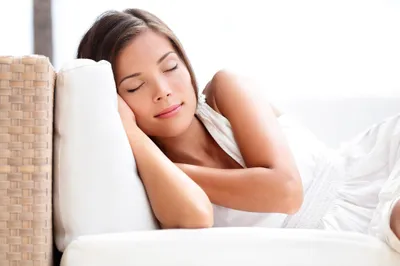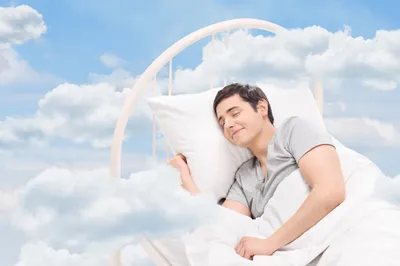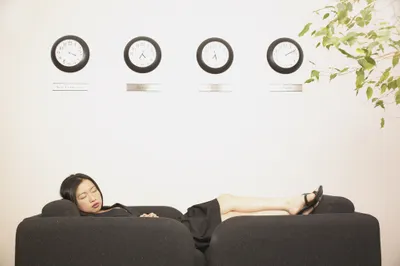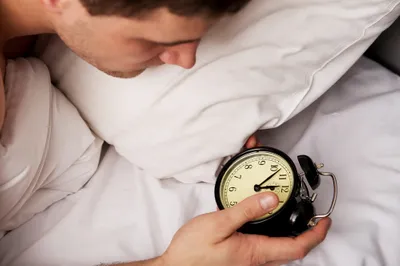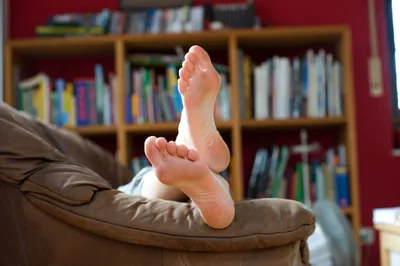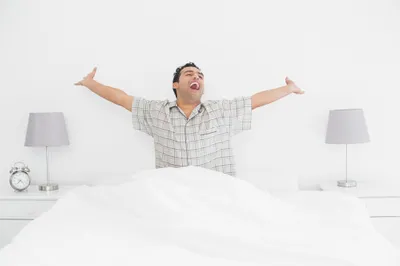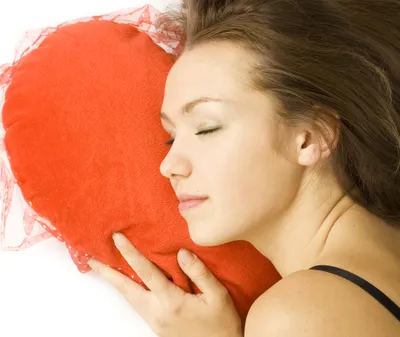More and more studies have shown that power naps have many health benefits for adults. That’s right, naps aren’t just for kids and they aren’t a sign of laziness. In fact, people who take power naps have experienced everything from improved memory and reduced stress to even lower blood pressure. While there are some cons to napping the potential pros make it worth trying out, as long as it’s done right. People with hectic and stressful lifestyles often benefit from napping, but it ‘s not just for crazy lifestyles. So whether you sleep well and for the recommended eight hours each night, feel burnt out, or if you wonder how and where in your schedule you’re supposed to fit sleep in, here are ten dreamy benefits of power naps that could change your life…
1. Energy Boost
Natural energy boosts can be hard to come by and caffeine is a popular remedy when people feel they’re fading during the day. But a power nap is the perfect, natural way to give your body and mind the boost you need. A short nap gives your body and mind a break, allowing you to feel energized when you wake up. When you wake up, the sleep cycle you should have been in provides rejuvenation, fueling your body with energy.
Power naps can provide give you that kickstart of energy, especially when you take a shorter nap—the less time you nap, the less likely you’ll fall into a deep sleep, making you groggy and taking away from the potential to boost your energy. There’s a bit of disagreement among experts about the perfect amount of time to grab that extra shut eye, but most fall in the range of 10 to 30 minutes. So pay attention to your body, specifically how you adjust and react to different lengths of time. Once you find what’s right for you, stick to it.
2. Increased Creativity
Between your job, family responsibilities, personal relationships, social and volunteer commitments, and even just running errands, a lot of things drain you—both physically and mentally. This stress and exhaustion is a clear strain on your creativity, and it can seem almost hopeless to get back. But getting the creative juices flowing could come from taking a power nap. Stress takes it toll on the mind so shutting down with a nap could revive your mind and organize your thoughts, bringing your creativity back to you.
You don’t need to have what’s considered a creative job for waning creativity to negatively impact what you do at work. Power naps have been proven to help in this area, and a not-so-surprising amount of people struggle with it often. Every job requires some level creativity, from the obvious artistic requirements of graphic designers and architects to the more subtle ones of administrative personnel organizing schedules or an accountant balancing books. So take a nap and see where your creativity goes—it could benefit you and your employer greatly.
3. Improved Memory
For many people, everything from power naps to 90-minute naps can be very restorative, resulting in improved memory and cognitive function. Some experts say that people who can nap properly—meaning being able to take a nap without falling into a deep sleep and waking feeling refreshed—benefit much more from these short naps than turning to energy drinks and caffeine. The nap allows them to reactivate their memory and organize information more easily.
Improved memory can be really helpful for people who have to absorb and remember a lot of information. Some require this for their jobs but students are a prime example, and a lot of research has been done about the ways students can effectively absorb the mountain of information they’re required to learn during high school, university and college. Studies have shown that students who nap after a round of studying often wake up with a better memory of what they had been learning and reading before their nap. It’s almost like hitting reset on the brain, allowing you to remember things that you would have otherwise forgotten.
4. Improved Mood
Odds are you know someone who is really cranky when they don’t get the sleep they need, or you might be that person. If so, you understand even more how important feeling rested is to your mood. Being tired can have a sort of snowball effect because you’re likely to feel grouchy, be short with those around you, or simply have a hard time focusing. These and other physical and emotional reactions as a result of lack of sleep only continue to keep you in a bad mood or worsen it as the day or weeks go by.
And the fact is, some days you just need that extra bit of shut eye. Whether you have a restless night or a stressful (and therefore tiring) week at work, a power nap can keep your spirits high. But if you have insomnia, sleep apnea, or other form of sleep condition, talk to your doctor before scheduling in any naps. People with these conditions aren’t usually encouraged to nap because of other health implications and risks, so speak to a professional first.
5. Increased Alertness
Power naps are effective at making you more alert when you wake up because there’s very low risk of falling into a deep sleep or another sleep cycle that causes grogginess. Your brain shuts down just enough that when you wake up, you experience a jolt of alertness. Study after study has shown that people working night shifts or in high pressure jobs with long shifts are much more alert when given the opportunity to power nap, sometimes several times a day.
There are many jobs that require you to be alert and that can be dangerous to yourself and others if you aren’t. Firefighters are a good example, though your job or situation doesn’t need to be that extreme to benefit from being alert as a result of a power nap. New parents learn to nap when their newborn does, even if it’s only for 10 minutes at a time, though other factors affect fatigue in that case. Regardless, research is solid in that power naps provide a higher level of alertness and even awareness than before catching those short z’s.
6. Increased Productivity
Your productivity and performance can also benefit from taking power naps, and what boss wouldn’t want you to be more productive? These days, it seems that everyone is experiencing some level of burnout at work or home and pushing through exhaustion only worsens and lowers your productivity. Naps are a viable option to help address this issue because it refreshes your body and gives your mind a break, and the increase in productivity from a power nap could last for several hours afterwards.
Bigger companies have started to recognize the benefits of daytime napping and allow or even encourage employees to take a power nap. Some have even gone as far as to designate an area for napping. Not every company will jump on the bandwagon, but if you can go somewhere to grab a quick power nap during a lunch or early afternoon break, you could be more productive at work. But if you work the standard 9-5 shift, avoid taking naps mid to late afternoon because it could prevent you from falling asleep and sleeping well that night.
7. Reduced Fatigue
According to the Mayo Clinic, reduced fatigue is another benefit of napping, given you limit the length and do it at the right time of day. This depends on your schedule but assuming you are napping in the right way, you could relish in the reduction of fatigue and exhaustion. It’s important to understand that sleep affects your health in many different ways, and power naps can allow you to get the rest you need to not only function well but also feel good. People who take power naps have experienced reduced fatigue overall, not just after the nap or on the day of the nap.
If you get into a good routine, feeling less tired is just one of many benefits. Ideally, your power nap should take place in isolation for optimal results, though this isn’t always possible. And it’s likely for people to adjust more quickly to this type of napping if it’s in a controlled—and the same—environment each time, but that doesn’t mean you won’t succeed and enjoy the benefits of power naps if your time and place aren’t perfect.
8. Lower Stress
Stress is inevitable at certain times of your life but it doesn’t need to be constant. Research has shown that psychological pressure and stress can be reduced by taking a nap. Stress is hard on your body and getting rest from a nap after you experience an increase in stress has been linked to improved cardiovascular healing, lowering the possible effects of stress on your heart. In addition, the hormones released during a nap or night of sleep contribute to decreasing your level of stress.
A lot of people find it hard to fall asleep during the day, even when they need it or could really benefit from it. If you give napping a try and just can’t do it, don’t force it but consider still taking the time to lie down and relax. Similar to when you go to sleep, your mind has to reach a certain level of relaxation and your thoughts can’t be too loud. Achieving this during the day in place of a power nap has been shown to have similar benefits to that of actual napping, so keep that time set aside to reduce stress.
9. Reduced Risk of Depression
Studies have linked people who get enough/the right amount of sleep to a lower chance of developing depression. And naps can help you get that perfect amount of rest if you don’t get it over night, so taking your power naps could be greatly beneficial to your mental and emotional health. Of course, everyone is different and the amount of sleep needed will range, but getting in tune with your body and figuring out the length and amount of naps you need to help both your mind and body is possible.
Similar to the reasoning for lower stress, naps give your body the rest it needs to function and perform at its best, and feeling your best all around plays a role in depression. Depression may also be reduced because stress can cause excess hormones linked to depression. Since naps can lower stress, it can then lower the risk of depression as well—napping can help balance hormones that cause mental health problems. Or even just considering the energy, alertness, reduced stress and increased productivity, the other benefits can contribute to improved mental health.
10. Reduced Risk of Cardiovascular Disease
There’s still debate and differing opinions about whether or not naps can help reduce the risk of cardiovascular disease, but as research continues to link the two more experts are beginning to see the potential of it. It’s believed that regular naps can lower blood pressure, but even more staggering are the results of studies that have shown a significant decrease in the risk of dying from a heart attack. People in high stress jobs greatly benefit from the cardiovascular healing properties of naps because stress can strain the heart and increase the risk of cardiovascular problems.
Studies in countries that typically have a lower mortality rate and lower risk of heart disease emphasize the importance of not only getting your rest, but being healthy in other ways—exercise and healthy diets are main contributors to heart health. When mixed in with regular power naps, this type of lifestyle is bound to reduce the risk of cardiovascular disease. So if you haven’t tried napping, it’s not too late to enjoy the many possible benefits of rejuvenating and healing your body in many ways, and you may even help your heart.

